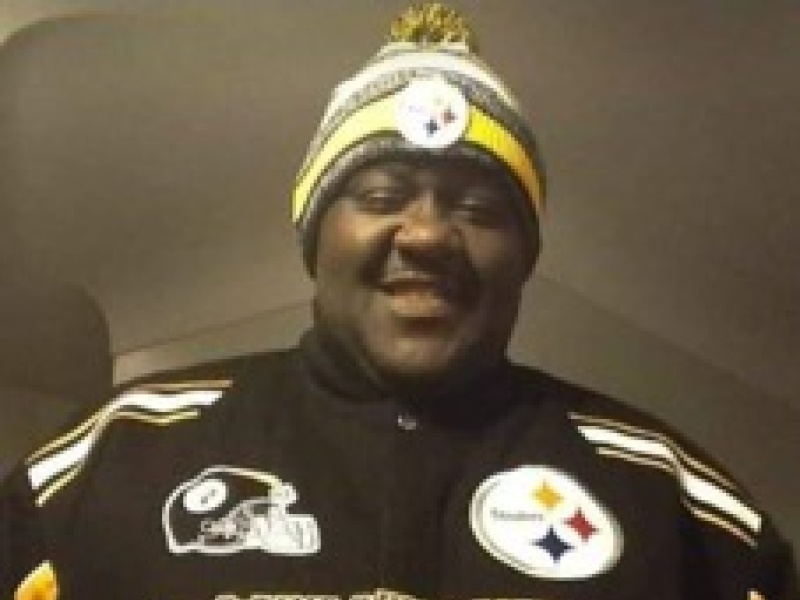
If you live in Cedar Rapids, you might have seen John Cooper.
Some people knew him as “the pizza guy” or the guy who traveled all over town in his wheelchair, waving as passersby honked hello.
Others just called him “Big John.”
“He was one of those people who could talk to a wall,” says his wife, Mary Cooper.
Mary says she met John while working at Dollar General.
“There was just that spark,” she says. “He moved in with me about three or four weeks after we started seeing each other.”
John was diabetic and on dialysis. Before they were married in 2014, he had to have one leg amputated. Shortly after their marriage, he had to have the other leg amputated as well.
“The incredible thing about my husband is that he went everywhere in his electric wheelchair,” Mary says. “He went miles every day no matter if it was raining or snowing or blazing hot. He would get in that wheelchair and drive it to his job like a car.”
Papa John’s made John the front counter manager, and he prided himself on training the younger workers.
“Even his kids would say John Cooper was known all over the city,” Mary says. “He was the most kindhearted, giving man you could ever imagine. Every child he would consider his and he would take them under his wing.”
Mary says his dream was to open a shelter and get people off the street.
“The house had a finished basement, and he would bring people in that didn’t have homes, girls came into our home that needed to get clean,” Mary says.
But ultimately, John’s health took a turn for the worse, and he died August 20, 2022.
Mary remembered when they had gone to the Department of Motor Vehicles at one point. Even though John couldn’t drive, she still insisted he get an ID card.
“We made an appointment and went out to the DMV, and the lady asked if he wanted to be a donor,” Mary says. “And he just looks and me and says, ‘Why? Nobody would want anything in this body.’ And it just broke my heart. I said, ‘you don’t know that.’ So, he told them to go ahead and mark yes.”
Mary says when John died, he had low self-esteem, but he still always wanted to help people. So, when she was asked about cornea donation, she said yes.
“He really thought nothing in his body was going to help somebody,” Mary says. But ultimately, his gift will help researchers develop treatments and cures for blinding eye disease.
Dr. Mark Greiner, University of Iowa Hospitals and Clinics corneal surgeon and Iowa Lions Eye Bank medical director, says, “One thing that makes Iowa Lions Eye Bank unique amongst all of the eye banks is their commitment to the creation of new knowledge.”
Eye tissue that supports research is a gift that impacts an entire generation of science. Researchers are inspired by the stories of their donors and do their utmost to honor their gift as they strive to find answers to the causes of blinding eye diseases, develop new ways to treat and prevent them, and develop cutting-edge procedures and technologies to improve corneal transplantation and eye banking processes.
Coincidentally, one of the areas Iowa Lions Eye Bank researchers are looking into is diabetes, and why the corneal cells of diabetics have declined mitochondrial function, with the hope that a treatment can be found. Without tissue from people like John, they wouldn’t be able to advance their work.
Knowing John helped others is a comfort to Mary.
“He was just the kindest man with the biggest heart, Mary says. “And such a dreamer.”